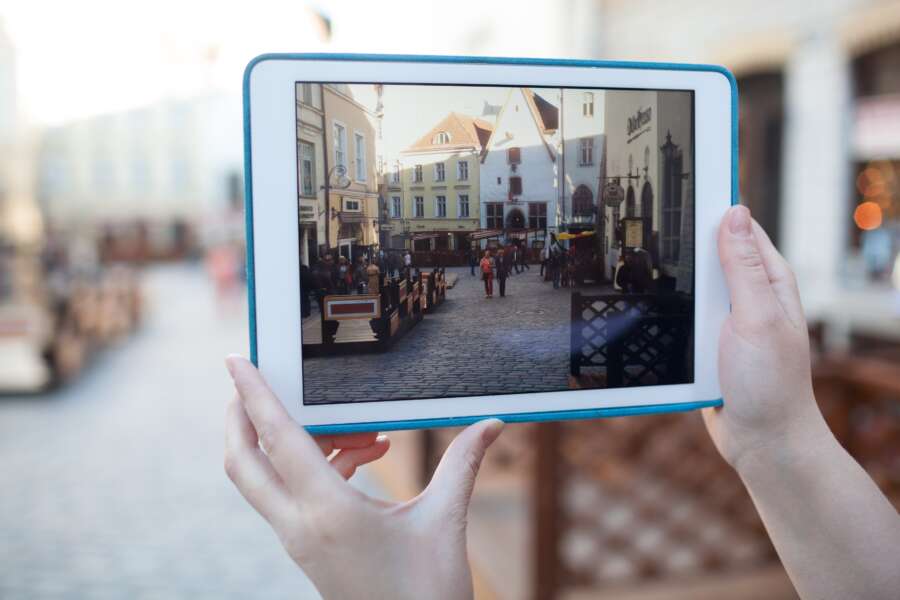By Amir Azulay, CEO Travel Curious
Why fuelling the experience economy is vital to the travel industry
Tours and activities are a key differentiator in the evolution of hotel bookings – with virtual tours a vital new lifeline
In March 2020 when the UK and rest of the world was plunged into lockdowns as a result of Covid19, the travel and tourism industry was one of the worst hit and continues to be to this day. Although the industry and public understood the need for such tight controls on our freedoms and movement, this is simply not sustainable for those like myself who make a living from tourism.
Businesses had to learn to adapt and pivot in order to survive and so was born the development of ideas for alternative ways to ‘travel and experience’ a world beyond our boundaries. The wanderlust from consumers was as high as ever before. Despite not being able to venture far from our doorsteps the public still yearned for far flung destinations, to discover new cultures, learn new languages, explore exotic cuisines and simply escape from the mundane day to day of lockdown.
Virtual Tours offer exactly this and so much more. From a basic consumer perspective they are an affordable and easy way to transport people to their favourite part of the world in an instant. However we must look at how this way of engaging in travel and tourism has become one of the saviours of the industry and why it is here to stay.
At the beginning they offered much needed financial support to the tour guides, who are mostly freelancers, and overnight lost their source of income without being eligible for government support packages.
However, this has evolved and experiences are about more than just travelling, they are now being used for educational, training and team building purposes. Furthermore the tours are a way for impaired members of the community or those who are simply unable to travel, to explore new cities and learn about their cultures.
So much can be gained from the tours from a deeper understanding of travel and tourism, from the real locals who are providing the tours but they also open up new opportunities for businesses on the ground to invite the guides into their lesser known or seen areas and explore in great depth a museum, landmark, gallery etc. Virtual tours transport the user from normal daily routine to participating in an experience live from the streets of a fascinating new city.
These fully interactive experiences are guided by knowledgeable locals who immerse themselves and the viewers into the community in which they live and work. Being live and interactive means the tours can also adapt from moment to moment. If a viewer spots something they want to look at more closely or ask more questions about a specific element, this can all easily be incorporated. It’s an entirely new way to experience other cultures and while borne out of the pandemic almost by necessity, virtual tours are a lifeline to those who are unable to travel for the reasons we mentioned above. They will never replace real tours and experiences but they open up a new opportunity to a much wider audience.
This type of experience is also not only financially beneficial to the local economies due to the income from the guides and hotels as a result of the sales but also very sustainable – it’s literally the ultimate eco-friendly way to discover a new city.
Virtual tours and their more real counterparts also tap into a new style of how we live and enjoy life. Whether you could put this down to Covid or simply changing perceptions of what is ‘cool’, experiences have very much overtaken belongings. As a human race, we’ve become increasingly driven by experiences and less preoccupied by possessions. Whether it’s to share with friends and family over social media or for self-improvement, experiences have become a part of our culture. We gain so much more from an experience than we do from a possession. An experience can uplift, educate, inspire and enlighten.
So whether consumers or businesses are looking for something fun, something educational or perhaps to use as a team building exercise, Virtual and physical tours can provide this. The natural shift into virtual tours during the pandemic will be here to stay alongside actual physical tours and experiences, which are themselves starting to see pick-up now that governments are allowing more free movement on a global scale.
About the author:
Amir Azulay is CEO and co-founder of Travel Curious, a technology-led tours and activities service provider formed in 2018.
